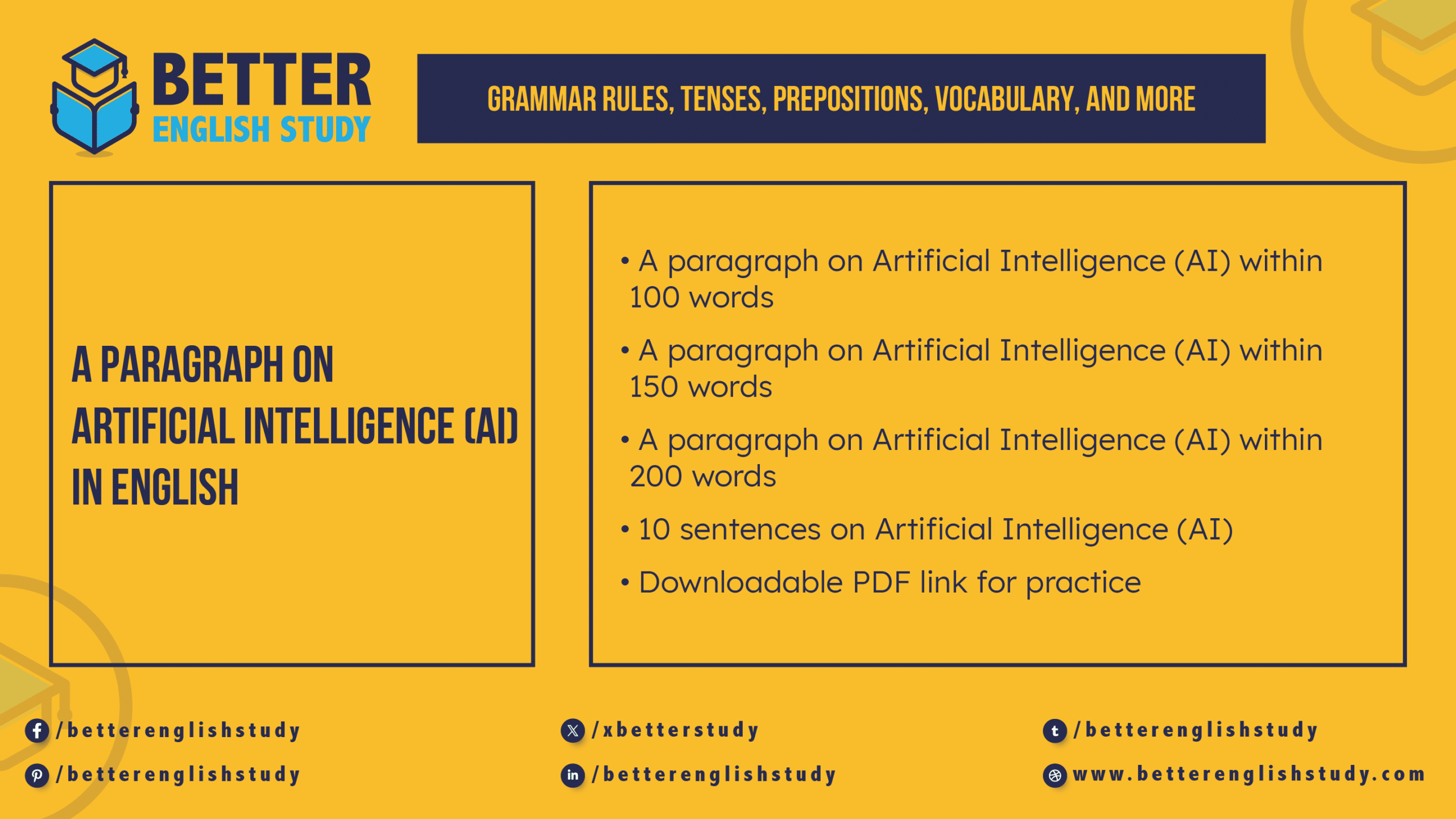
Artificial Intelligence is transforming the world.
A Paragraph on Artificial Intelligence Within 100 Words
Artificial Intelligence (AI) refers to the ability of machines to perform tasks that typically require human intelligence. This includes activities like understanding natural language, recognizing patterns, and solving problems. AI is used in various applications, such as virtual assistants, self-driving cars, and recommendation systems. It helps make our lives easier and more efficient. For example, AI can analyze large amounts of data quickly, assisting businesses in making informed decisions. As technology continues to advance, AI is expected to play an even greater role in our daily lives.
A Paragraph on Artificial Intelligence Within 150 Words
Artificial Intelligence (AI) is the simulation of human intelligence by machines, enabling them to perform tasks that usually require human thinking. This technology can process and analyze vast amounts of data quickly and accurately, making it a valuable tool in various fields. AI is used in everyday applications, such as virtual assistants like Siri and Alexa, which understand and respond to voice commands. It also powers recommendation systems on platforms like Netflix and Amazon, suggesting content based on user preferences. In healthcare, AI assists doctors in diagnosing diseases and personalizing treatment plans. Additionally, self-driving cars use AI to navigate and make decisions on the road. While AI offers many benefits, it also raises ethical questions about privacy and job displacement. As AI technology continues to evolve, its impact on society will be significant, making it crucial to understand its potential and challenges.
A Paragraph on Artificial Intelligence Within 200 Words
Artificial Intelligence (AI) is a branch of computer science that focuses on creating machines capable of performing tasks that require human-like intelligence. This includes learning from experience, understanding natural language, recognizing patterns, and making decisions. AI technology has made significant advancements in recent years and is now an integral part of our daily lives. For example, virtual assistants like Siri and Google Assistant use AI to respond to voice commands and provide information. In the business world, AI can analyze large datasets quickly, helping companies make informed decisions and improve efficiency. In healthcare, AI plays a vital role in diagnosing diseases and developing personalized treatment plans based on patient data. Moreover, AI is at the forefront of innovations such as self-driving cars, which can navigate and make decisions in real-time. However, the rise of AI also presents ethical concerns, including privacy issues and the potential for job displacement. As AI continues to evolve, it is essential for society to address these challenges while harnessing its benefits for a brighter future. Understanding AI will be crucial for adapting to the changes it brings to various aspects of our lives.
10 Sentences about Artificial Intelligence (AI)
- Artificial Intelligence (AI) mimics human intelligence in machines.
- AI can perform tasks such as learning and problem-solving.
- Virtual assistants like Siri use AI technology to assist users.
- AI analyzes large datasets quickly and accurately.
- It helps businesses make informed decisions.
- AI plays a significant role in healthcare diagnostics.
- Self-driving cars rely on AI to navigate safely.
- AI can improve customer experiences through personalized recommendations.
- Ethical concerns regarding AI include privacy and job displacement.
- Understanding AI is essential for adapting to its future impact.
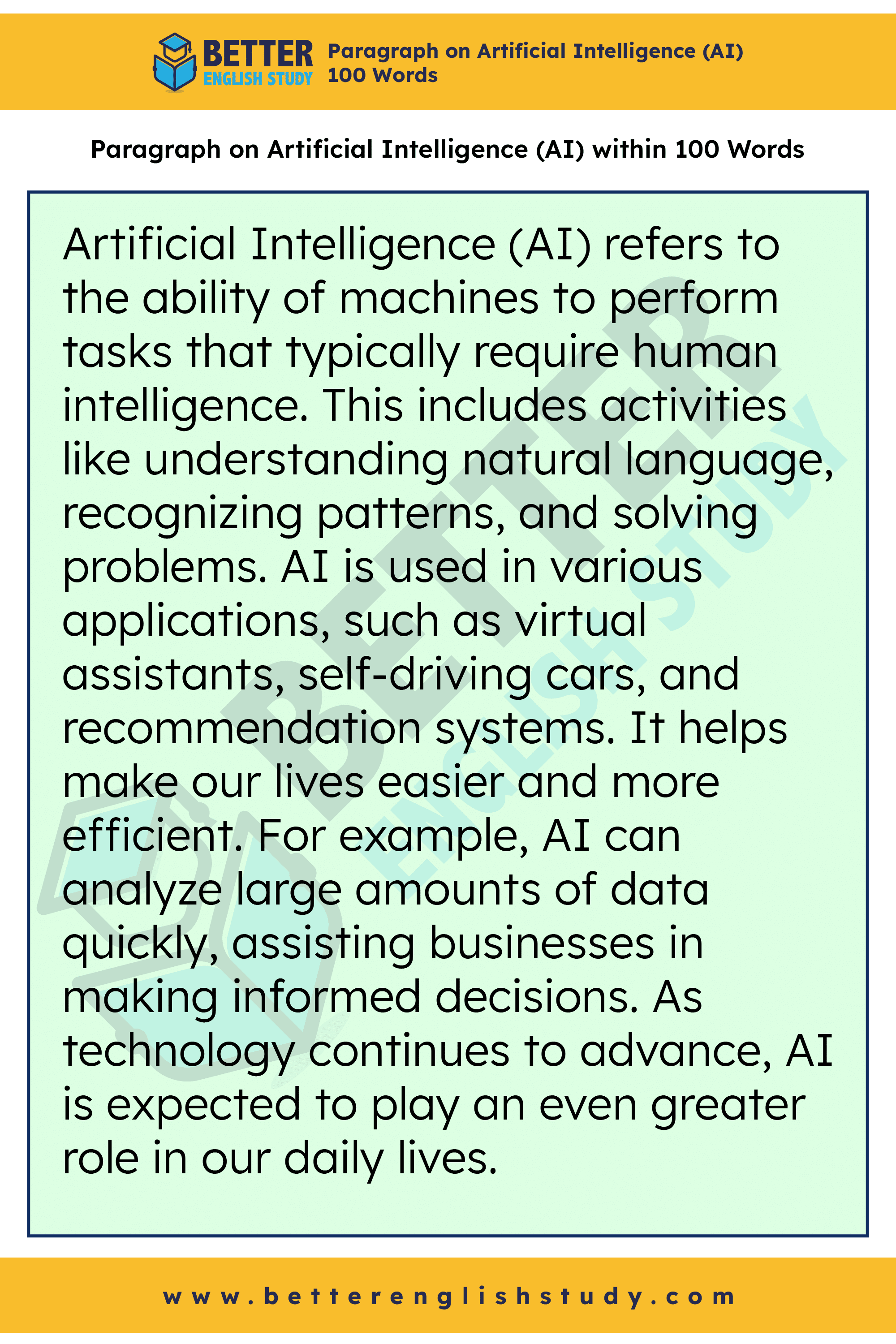
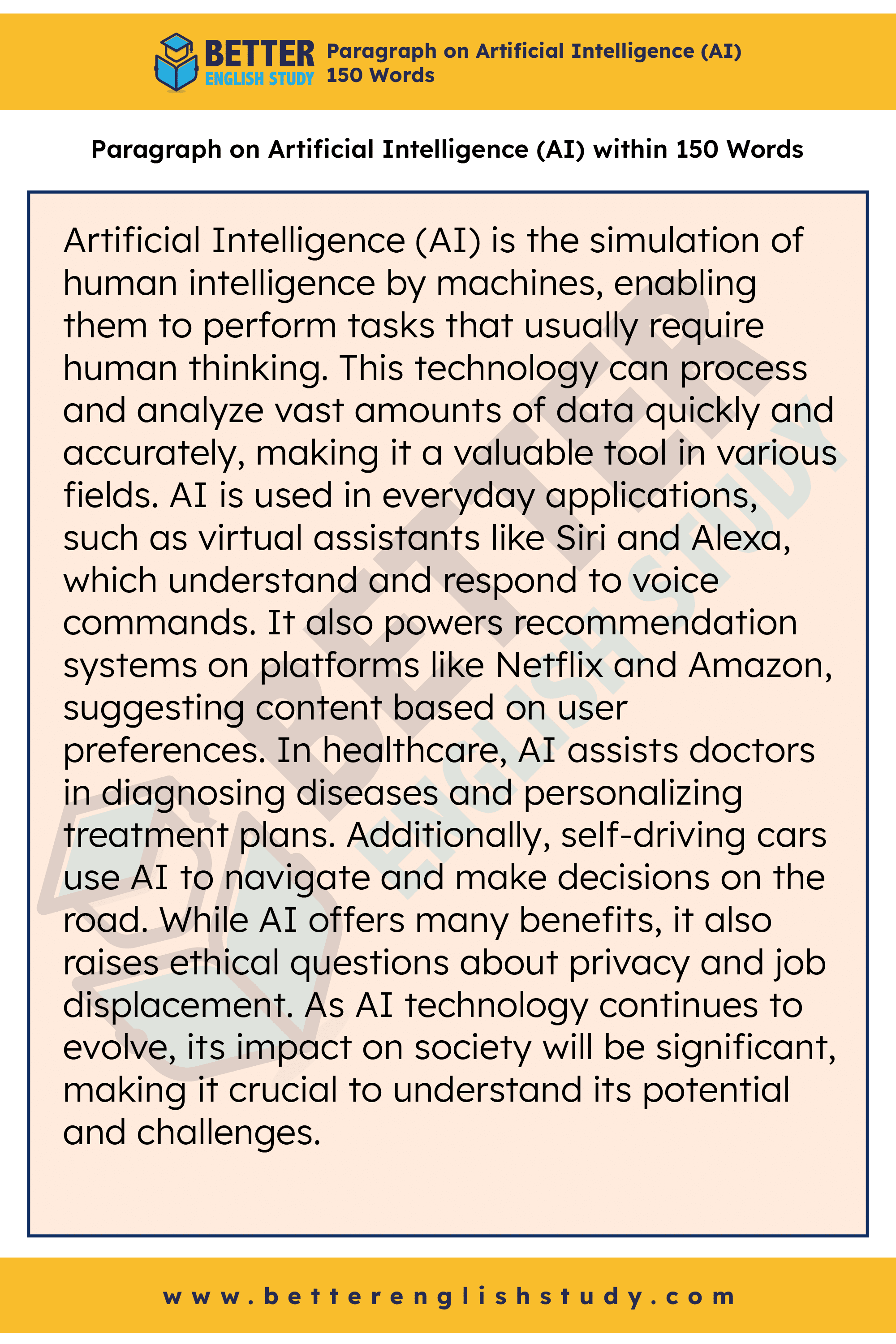
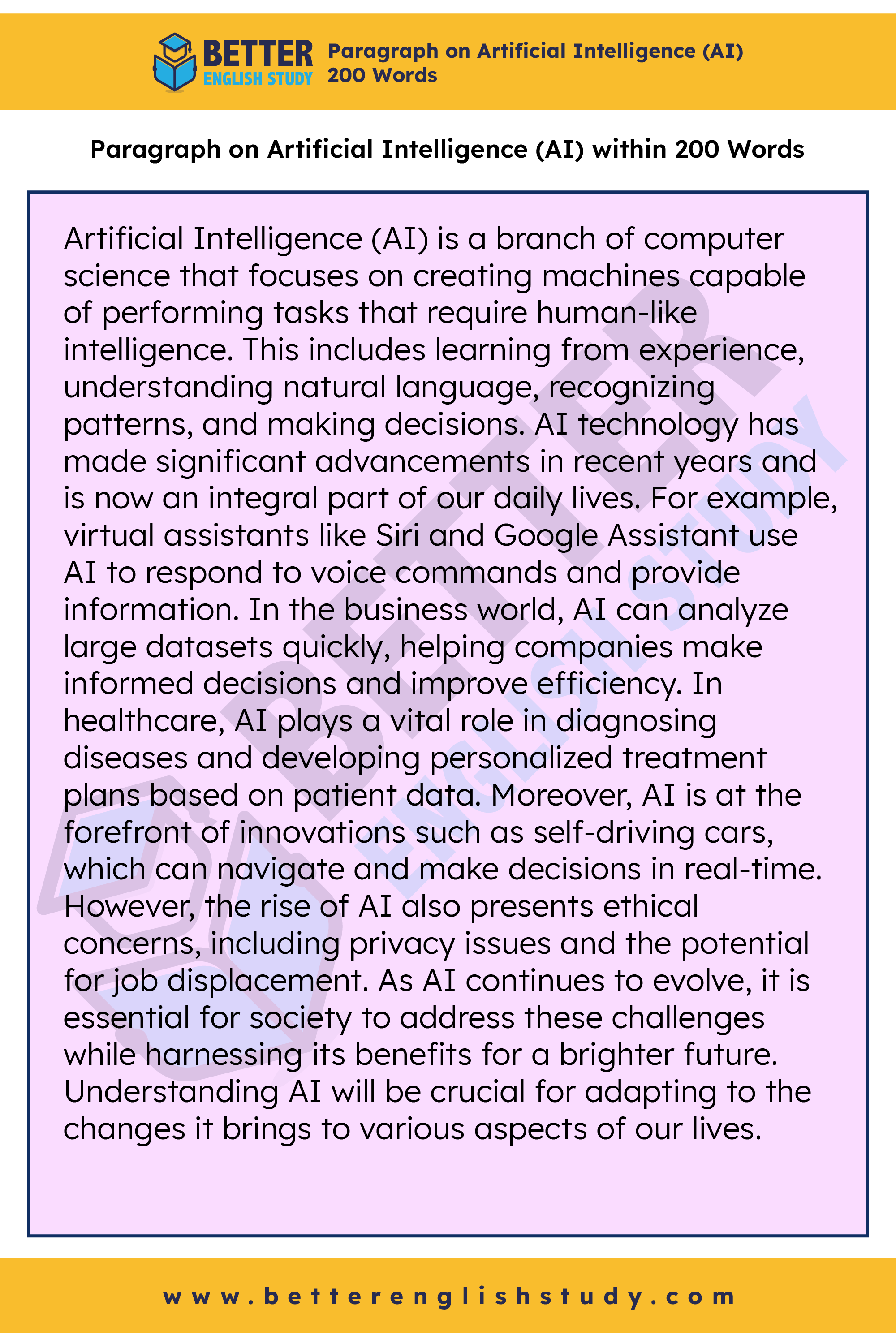
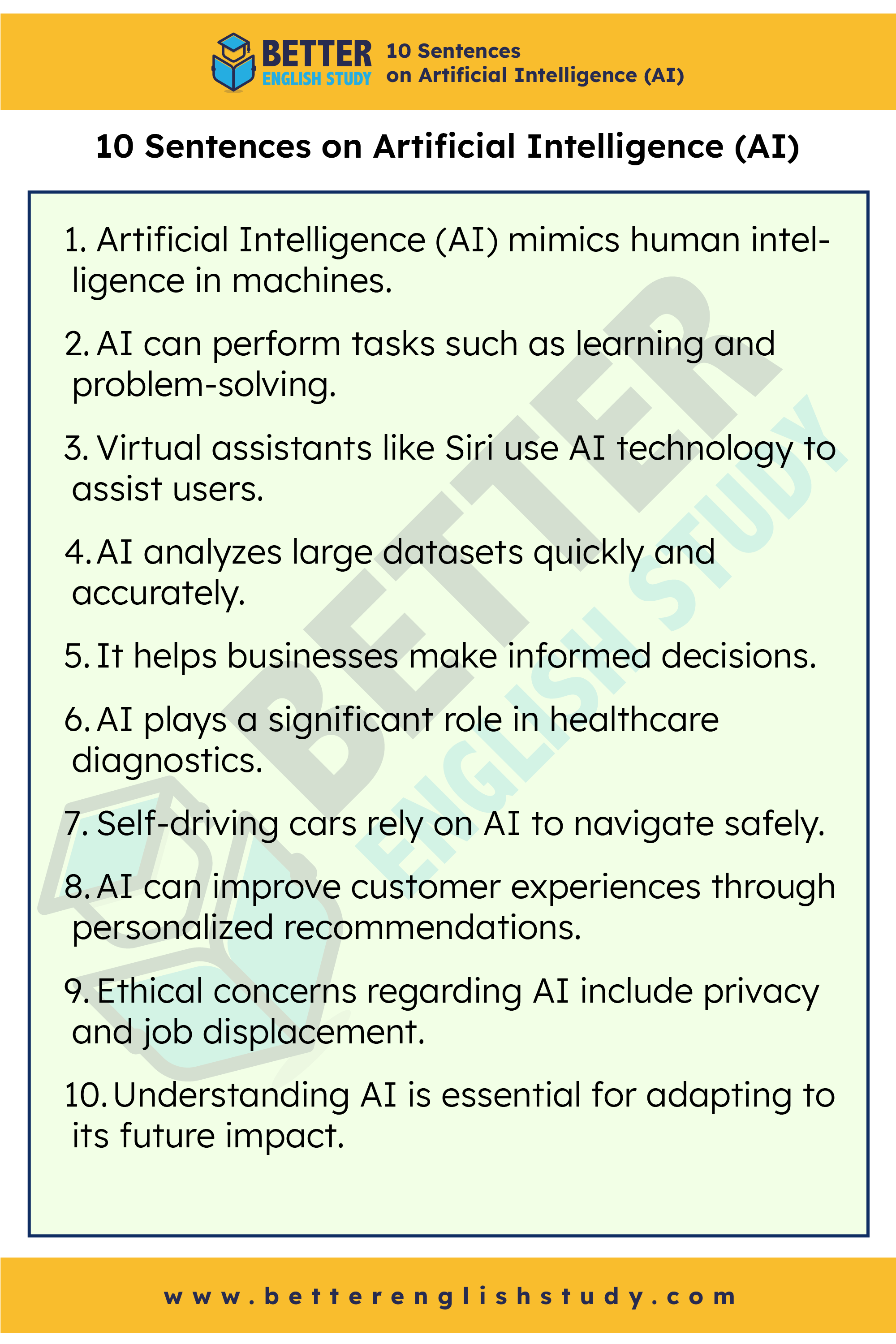
Meanings of Difficult Words
| Word | Meaning | Synonyms |
|---|---|---|
| Simulation | The imitation of a process or system | Imitation, reproduction, representation |
| Dataset | A collection of data used for analysis | Data collection, data set |
| Displacement | The process of being moved from a place | Removal, transfer, shift |
Conclusion
Artificial Intelligence (AI) is transforming our lives by enabling machines to perform tasks that require human intelligence. While it offers numerous benefits, it also raises important ethical considerations that society must address.
